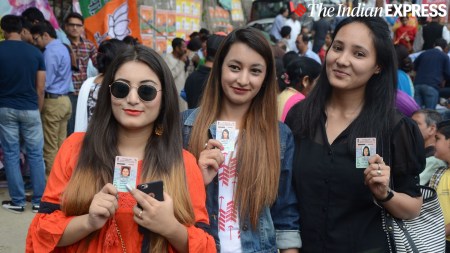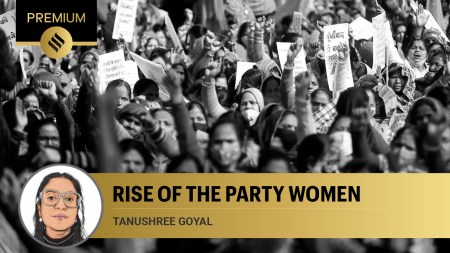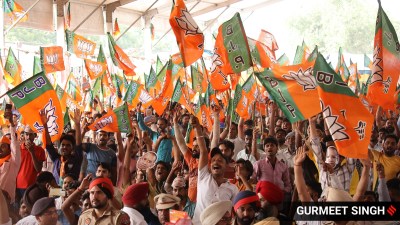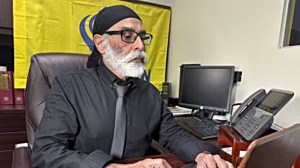- India
- International
Sky-rocketing star fees, low box office returns: Amid a spate of flops, Bollywood needs content correction
With consecutive failures such as Laal Singh Chaddha, Raksha Bandhan and Shamshera, and mounting pressure to score at the box office, stakeholders discuss why Bollywood needs to re-think about its functioning.
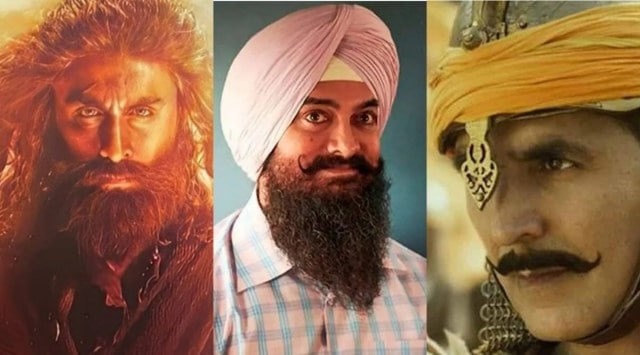 The year so far has seen big films from A-list stars failing at the box office.
The year so far has seen big films from A-list stars failing at the box office.In 2019, Akshay Kumar starred in four successful films, Shahid Kapoor delivered one of the biggest hits of his career and Ranveer Singh led his humble feature about a rapper from Mumbai slums to box office glory. Three years, multiple Covid waves, an OTT revolution and a series of South Indian mega blockbusters later, the tables have turned.
Ranveer Singh has delivered a disastrous Jayeshbhai Jordaar, Shahid Kapoor has tanked with his Jersey and Akshay Kumar is likely to deliver his third dud of the year with Raksha Bandhan after Samrat Prithviraj and Bachchhan Paandey. It is a messy year for the Hindi film industry, which has seen only three successes with Gangubai Kathiawad, Bhool Bhulaiyaa 2 and The Kashmir Files even as much-awaited, big-budgeted films bite the dust. Aamir Khan’s Laal Singh Chaddha, despite the expanse of its canvas and the star billing of its lead, has failed to find audience at theatres.
There is concern, questions and skepticism. Are Hindi film’s unreasonable budgets failing projects? Is the industry bankrolling poor scripts? Have South Indian films, especially after SS Rajamouli’s Telugu epic RRR and the Yash starrer Kannada actioner KGF: Chapter 2, cracked the code? Or, what has emerged as a crucial talking point today, do star fees need reassessment?
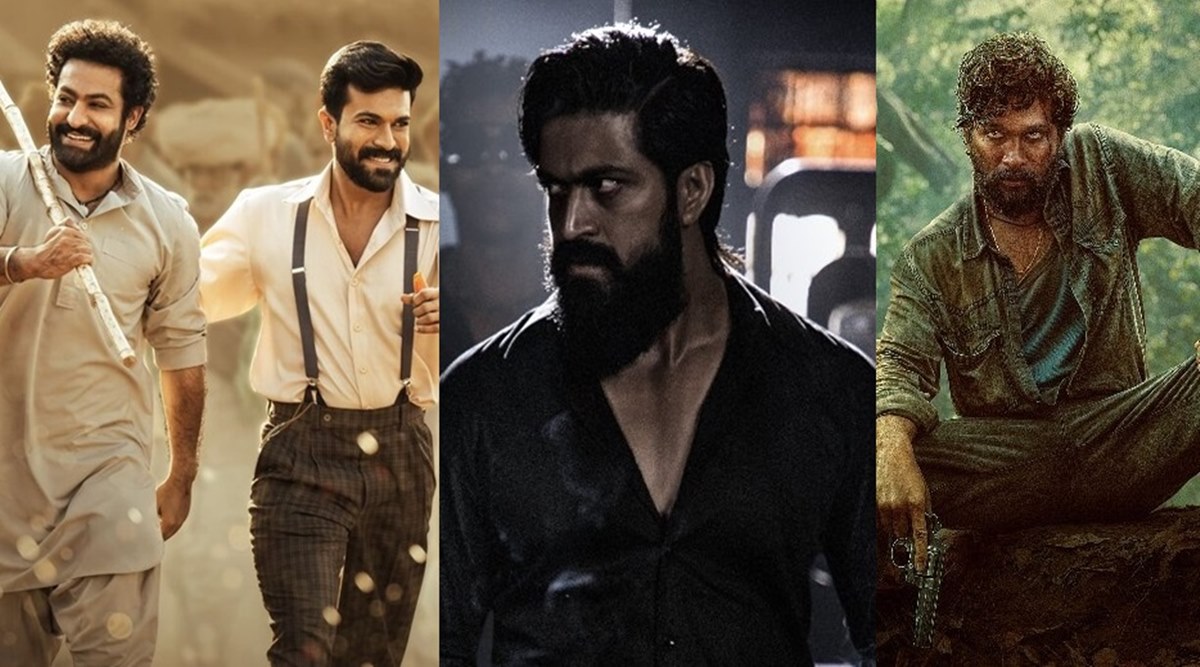 Posters of recent South Indian blockbusters RRR, KGF: Chapter 2, and Pushpa: The Rise.
Posters of recent South Indian blockbusters RRR, KGF: Chapter 2, and Pushpa: The Rise.
The answer, according to multiple industry experts indianexpress.com spoke to, is all of the above. Interacting with Anant Goenka, Executive Director, The Indian Express Group, and The Indian Express film critic Shubhra Gupta, actor-producer Alia Bhatt, at the recently held Express Adda, said that the post-pandemic times in the industry should lead to some correction in star remuneration.
“I agree that it should happen. I am not a number producer but a creative producer. But I do understand that it’s the content that’s bringing people to the theatres while star and star values add layers. For that aspect, it should balance out because you are not loading the budget of the film…

“In general, I am sure all the producers are thinking that some reassessment (on star fees) needs to be done. Even stars are thinking that way. Many times, an actor charges a certain fee and when the film doesn’t do well, they don’t charge the balance fee. They even give the money back. But we don’t do PR for that. No one is fleecing anyone.”
Star fee structure: Profit sharing or upfront fee
While there is no definitive data available on the exact remuneration of a star, according to industry insiders, Bollywood A-listers work on different modes of fees. The three Khans, Aamir, Salman and Shah Rukh, are into profit sharing. According to sources, Aamir takes 75 percent of the profit his films makes, while Shah Rukh takes home 65 percent. The rest of the percentage goes to co-producers.
“For example in Pathaan, Yash Raj Films will get 35 percent of the profit, SRK will get 65 percent. If it a Red Chillies film, then everything is entirely his. But Shah Rukh has rarely done an independent solo Red Chillies film, every movie has had a producer partner. Happy New Year, Chennai Express had UTV, Jab Harry Met Sejal was NH Studioz and so on. All films have a partner, to balance the economics,” the source says.
Salman Khan takes away either the profit or the satellite and digital rights of his films. “The production budget of his films does not involve his acting fees. The music rights and theatrical business of his films go to the co-producers. What comes from satellite and digital rights is all his. It mostly worked for him, when he was delivering blockbusters, but now there is skepticism… Before pandemic, even a bad Salman film would touch Rs 200 cr, but now one doesn’t know for sure,” the source adds.
 Salman Khan in his next film Bhaijaan.
Salman Khan in his next film Bhaijaan.
Akshay Kumar, according to another industry insider, charges a fee of upfront Rs 135-144 cr, with no profit sharing. Actor Hrithik Roshan, who delivered one of the biggest hits of the industry with the actioner War, was in profit sharing with Yash Raj Films for the project. He otherwise reportedly charges close to Rs 70 cr, similar to that of Ajay Devgn.
New-age Bollywood actors charge upfront fees. While Ranbir Kapoor, according to sources, rakes in Rs 50 cr, Ranveer Singh charges Rs 55-60 cr. John Abraham takes home close to Rs 18 cr, Shahid Kapoor’s fee is Rs 30 cr and Kartik Aaryan is in the range of Rs 20-25 cr, the source adds.
“Varun Dhawan was on profit sharing basis for Jug Jugg Jeeyo. The film had a fairly decent run at the box office clocking in Rs 85 cr against a budget, which included advertising, of Rs 105 cr. Varun has also opted for profit sharing in his next, Bhediya. The film is high on VFX, so he has invested his acting fee in the film,” the source adds.
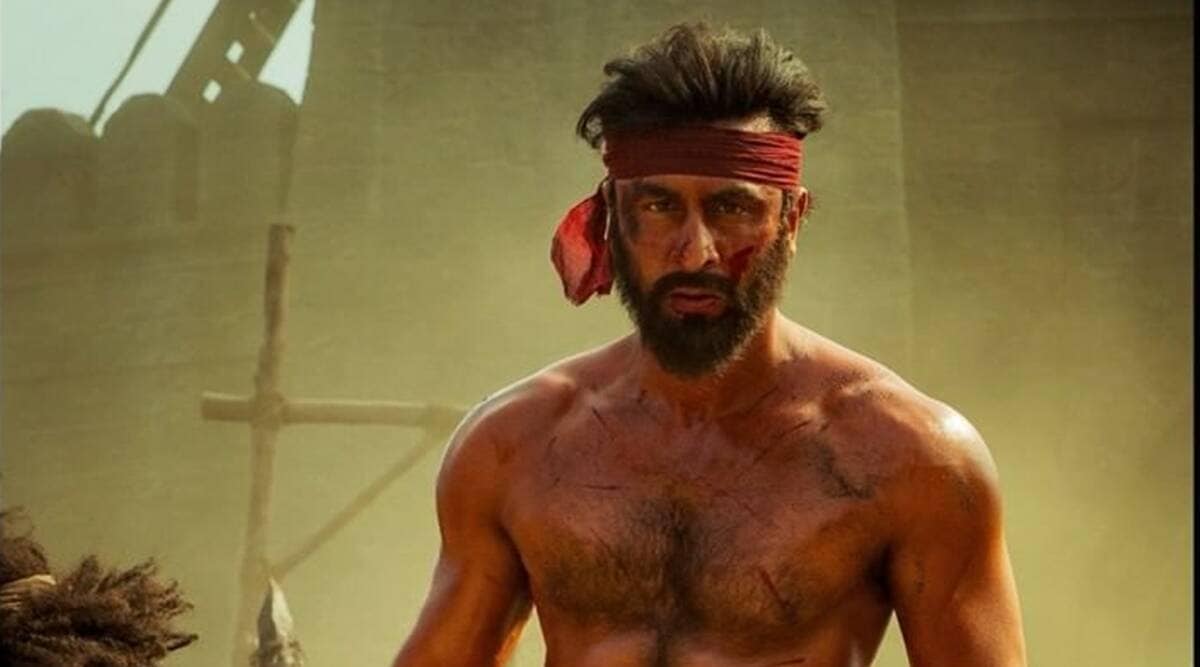 Shamshera crashed at the box office.
Shamshera crashed at the box office.
‘Every idea can’t become that big, if one quotes upfront fee’
Filmmaker Anurag Kashyap, whose lone big budget adventure with the 2015 Ranbir Kapoor starrer Bombay Velvet resulted in a colossal box office failure, says every film comes with its own fee structure. For some, artistes have to enter into profit sharing so as to not burden a project with their remuneration.
“Every film has to be worked backwards. You have to access your own film to decide that. If I want to do a certain kind of film, and I know it won’t make as much money, then to say, ‘I only want the fee I got for another big budget film’ means I am being stupid. Hollywood has figured it out, they are very transparent about it.
“India doesn’t have that transparency. If there is transparency, then actors will start taking backends: If the film makes money, then I will take money. But the problem is, a lot of them only work for upfront money. Every idea can’t become that big, if one quotes upfront fee. No one takes a chance here. For 40-50 percent of films, I have charged nothing, because the idea is to get the film made,” Anurag says.
Actor Taapsee Pannu, known for headlining commercial films like Judwaa 2 and also for leading mid-size films like Pink and Saand Ki Aankh to success, says she has opted for profit sharing with two of her Telugu films. “I have done that twice in Telugu films of mine, and ended up making money. I didn’t charge a single penny, because they were small concept driven films. There was no big hero, just me and an ensemble cast of supporting actors. When they made money, I took a percent of it.”
View this post on Instagram
Producer Pritish Nandy, who has backed projects across the three mediums– films, TV and now the OTT– feels the issue is not so much an actor’s remuneration but the absolute lack of good projects in Bollywood. Nandy, who has been a producer for over three decades, believes all stars are ready to work for “a reasonable fee if they have a great script in front of them”.
“The problem has got nothing to do with star salaries in my opinion. If you come up with a great script and take it to any actor, they will find a way to make that film affordable. Actors are not the monsters they are made out to be. One or two might be difficult, but almost all of them will make it possible to mount the film in an affordable budget.
“The problem is, if they are going to do it as a day job and not as something they are passionate about or greatly excited about, they will charge you their fees. We have sh*t going around, so no wonder actors ask for absurd fees. If the film is bad, if it is badly written project, it won’t work at the box office in any case,” he adds.
‘Star remuneration symptom of a larger disease plaguing Bollywood’
While the conversation regarding the reassessment of star fees gained momentum after all biggies–from Aamir, Akshay, Ajay, Ranbir to Ranveer– failed to deliver at the box office, trade experts feel blaming the lackluster performance only on their remuneration is absurd.
“There is no film recently which failed because of the star fees. Even if Shahid would have charged Rs 10 cr instead of Rs 30 cr, the result would have been the same, flop. Budgets are being comprised because of star fees, but films are not failing because of star fees. They are failing because they are just bad films, not expensive films. If a star quotes less and if the film is bad, only the losses will reduce. The film will still bomb,” Himesh Mankad, trade observer, says.
According to Himesh, the idea now should be to infuse maximum money in production budget so that it is visible on screen and then get into an agreement where a star can get into a profit sharing. If a film is good, star fees won’t even come into the picture because a good film will also recover the remuneration , he adds.
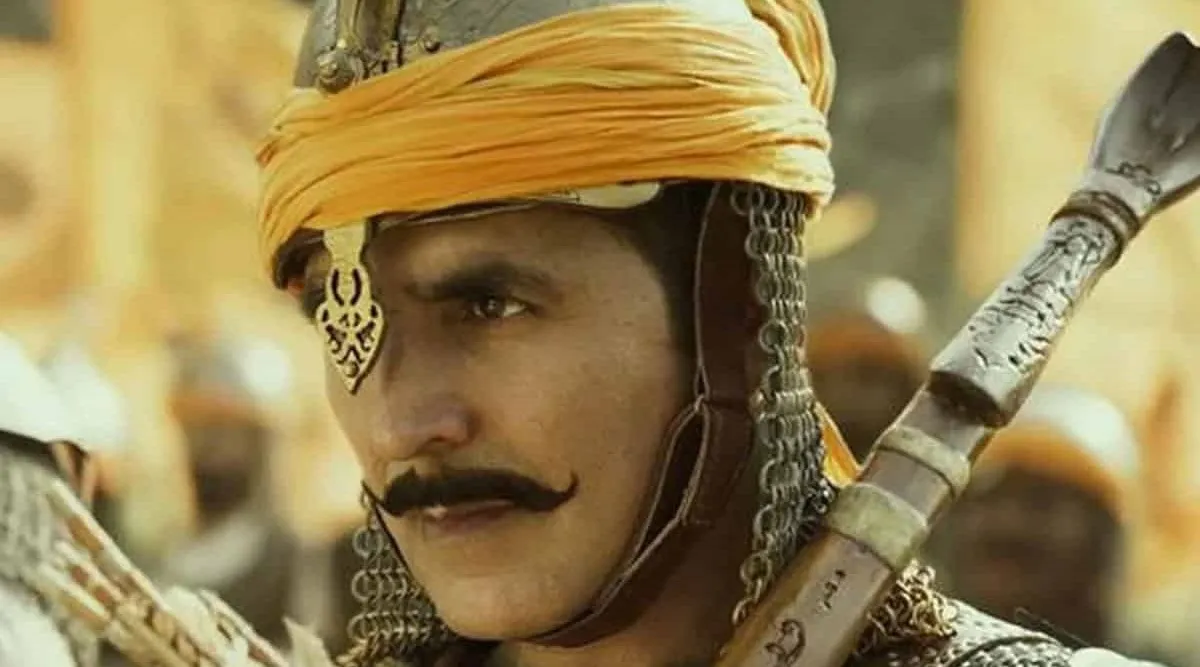 Akshay Kumar in a still from Samrat Prithviraj.
Akshay Kumar in a still from Samrat Prithviraj.
Exhibitor and trade observer Vishek Chauhan feels star fees is just the “symptom of a larger disease plaguing Bollywood”. “Reducing star salaries will not solve your problem. If a film is not working, an Akshay Kumar even at 20 crore is expensive. If a film bombs, even a 5 crore paid to Pankaj Tripathi is too much. Stars down south are commanding Rs 80 crore on an average, nobody is questioning that because their films have worked.
“The problem is that the Hindi films have not been working. Period. The discussion is irrelevant because a good film can have a recovery of Rs 300-400 cr, where nothing would be expensive. I don’t think Akshay or Aamir are expensive, the people who are making films with them don’t know to use them. If Akshay does a film that guarantees a good time at the box office, he will deliver,” Vishek adds.
While star salaries don’t decide the outcome of a film, it definitely does end up compromising a movie’s budget. A producer, on the condition of anonymity, says, “Sometimes the impact of an actor’s remuneration is directly on the film’s budget. If I want a certain star to headline my film, and if I know his presence will benefit my film, I will compromise on my budget. That has happened. There is no way out, unless the fee is slashed”.
‘Costly stars, replaceable actors’
The conversation amongst most producers today is how to manage the exorbitant sum an actor quotes to star in their films. Some favour the model of a nominal upfront fee plus profit sharing, others are considering to work with those who are ready to slash their price by at least 5o percent.
An insider says big stars, in most cases, figure out a way to invest their money to mount a better film–but it is the smaller stars who will be most impacted if they cannot justify their price with their box office pull. A producer, on the condition of anonymity, says actors should ideally be paid according to their opening weekend collection.
“In this scenario, smaller stars are replaceable. If, for example, a Shahid Kapoor charges Rs 38 cr and says he will not reduce his fee, there are chances he can be replaced by a Varun Dhawan, who might come on profit sharing basis or even Ranveer or Ranbir, if they settle for Rs 40 cr. Basically, whoever is flexible, will be taken and the film will get made,” the insider says.
Another insider shares that in the present context of Bollywood, there is going to a “major change” in remuneration, “Rajkummar Rao charges around RS 14 cr and an Ayushmann Khurrana Rs 20 cr plus, and if one sees how their films have fared, there will definitely be some course correction. And it is not limited to just them, the talks are happening across”.
 Anek starred Ayushmann Khurrana in the lead role.
Anek starred Ayushmann Khurrana in the lead role.
‘Why wait, when we can see the stars on OTT’
In 2020, when India witnessed its first of the many coronavirus-induced lockdowns, the entertainment shifted from the big screens to, what would definitely end up revolutionising the industry, the OTT. The easy, comfortable access to films right on people’s cell phones altered the way movies would perform at the box office.
The eight-week pre-pandemic release window of a film streaming on OTT post its theatrical run shrunk to four weeks, when cinema halls opened. That killed the urgency to catch films on the big screens. The industry is now back to the eight-week window and is hoping that the pre-pandemic habit of catching a film in theatres is reinstated.
“The shorter window is definitely a problem. In the pre-pandemic times, a good film’s business would continue till its third week. So even if a film opens to decent numbers, it would have a long run at the box office with good word of mouth. By the time the word of mouth would travel and entice people to come to the theatres, it would already be two weeks and by then the audience would think, in another two weeks the film will come on OTT anyway, so what is the point?” Himesh says.
The rise of OTT platforms have also put Bollywood producers out of touch with the ticket-buying audience, Vishek notes. There is a state of panic and confusion regarding the segregation of content: What should be kept for cinema halls and what to stream on OTT. With consecutive failures for Bollywood, Vishek says, the “fear of box office has set in”.
 Shahid Kapoor is collaborating with Ali Abbas Zafar on his next film. (Photo: Ali Abbas Zafar/Twitter)
Shahid Kapoor is collaborating with Ali Abbas Zafar on his next film. (Photo: Ali Abbas Zafar/Twitter)
It is still unclear in the minds of producers what films are meant for theatrical and OTT, but the audience has figured out the distinction. “Every week, they are telling the industry: ‘We won’t come for this’. We need big tentpole films for the audience to come. They will now wait for supposedly ‘good’ but non-event films to come directly on OTT. The crisis is so humungous that an action film of Ali Abbas Zafar starring Shahid Kapoor is apparently taking the OTT route. Can you beat that? We killed the mass cinema and now we are scared of what will happen. The fear of box office has set in,” he says.
‘Focus on tighter budgets, not time-pass films’
Director-producer Nikkhil Advani, who has helmed both, big-star films like Kal Ho Na Ho, Salaam-e-Ishq and mid-size projects like D-Day and Batla House, agrees that a film’s budget is instrumental. At his production house Emmay Entertainment, the filmmaker said, they may have gone wrong in backing the correct film, but never its production cost.
“When you are making a film, 99 percent of the times you are unsure if it is going to work. There are always going to be just a handful of films that are either be critically acclaimed or work wonders at the box office. As far as Emmay Entertainment is concerned, we make films only in budgets. If you are eventually going to be a kind of a production company, which is doing the volume of work that we are now doing, it is important to be agnostic of the Friday.
“The only way to be that is budget. You have to make sure that by Thursday you are in some safe zone, so that by Monday you can start work again- whatever happens to the film on Friday. Budget has always been the criteria for us. We may choose wrong subjects in terms of the story, but our budgets never go wrong because we never want to be in a position where we have to put our house on sale,” the filmmaker says.
View this post on Instagram
Nikkhil believes the current times has seen a shift in terms of what audience is watching. If a film in 2022 is not well mounted, they will reject it. “It is extremely expensive to go and watch a film in theatres. So the criteria now is, we need value for money. If Bhool Bhulaiyaa 2 is going to give me good comedy, with good music and it is mounted well, I will spend money. We have to understand that audiences today cannot be taken for granted. They no longer watch a ‘time pass’ film. Right now, they wait for the films to come on OTT”.
According to insiders, the industry will have a serious re-think about how to mount films after the subpar performance of the latest releases, Aamir Khan-Kareena Kapoor Khan fronted Laal Singh Chaddha and Akshay’s Raksha Bandhan. As many as 10 films in the development stage will be halted to ensure they are better “on all fronts, from script to budget”.
“Things are going to change massively on all fronts, all A-list actors will have to become a part of profits for the eco system to survive. Only time will tell how many actors will let go of upfront money for the betterment of the film. Only those secure enough can do this,” the source added.
Click for more updates and latest Bollywood news along with Entertainment updates. Also get latest news and top headlines from India and around the world at The Indian Express.
Best of Express
Jun 02: Latest News
- 01
- 02
- 03
- 04
- 05



